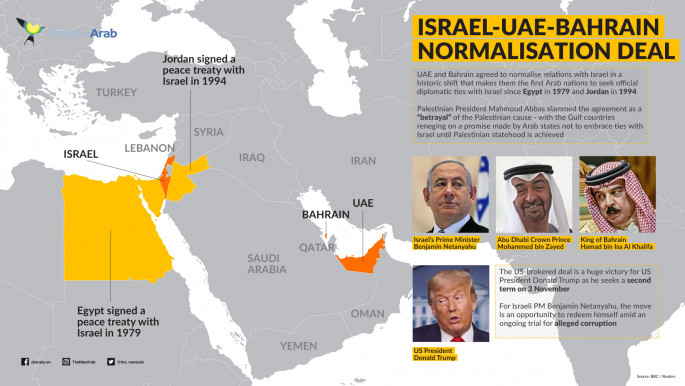UAE-linked Twitter accounts urge crackdown on Israel peace deal critics
Hamad Al-Hosani, a government-linked Emirati social media influencer with more than 40,000 followers tweeted: “I hope that our specialised agencies will monitor some of the tweets of residents in our country who are opposed to the state’s policies, and expel them from this country because they will be a threat to the security of our nation.”
Al-Hosani has a long history of tweeting in favour of the UAE government’s domestic and foreign policies, taking aim at the Muslim Brotherhood in particular, which the UAE has waged a campaign against throughout the Middle East.
|
|
Read also: Reflections on Mohammed bin Zayed’s preferences regarding UAE foreign policy
His tweet was retweeted with a warning by Iyad al-Baghdadi, an Arab Spring activist and prominent critic of undemocratic governments in the Gulf.
Other Twitter accounts linked to the government promoted an app called “My Safe Society”, which encourages users to report “ideas which threaten the safety of UAE society”.
The app has been castigated as “Orwellian” and “totalitarian” by Gulf analysts.
Following the surprise announcement of the peace deal between the UAE and Israel, the two countries are now in negotiations to establish cooperation in various fields, such as telecommunications, healthcare, and agriculture, as well as security.
Read also: Beyond the glitz and glam of the UAE lies a sinister cyber surveillance state
The deal was welcomed by some Arab governments, such as those of Egypt and Bahrain, but widely condemned on a popular level, particularly by the Palestinians, who have held widespread protests against it.
The Palestinian Authority and Hamas called the deal “a stab in the back”.
Israel and the UAE had a long history of informal and unacknowledged cooperation before the peace deal was signed. The UAE has previously used Israeli spyware to hack the phones of dissidents.
Human rights organisations have previously criticised the UAE for its human rights record and crackdowns on free speech.
Amnesty International has noted that detainees, including foreign nationals in the country, are subject to “arbitrary arrest and detention, torture, and enforced disappearance”.




